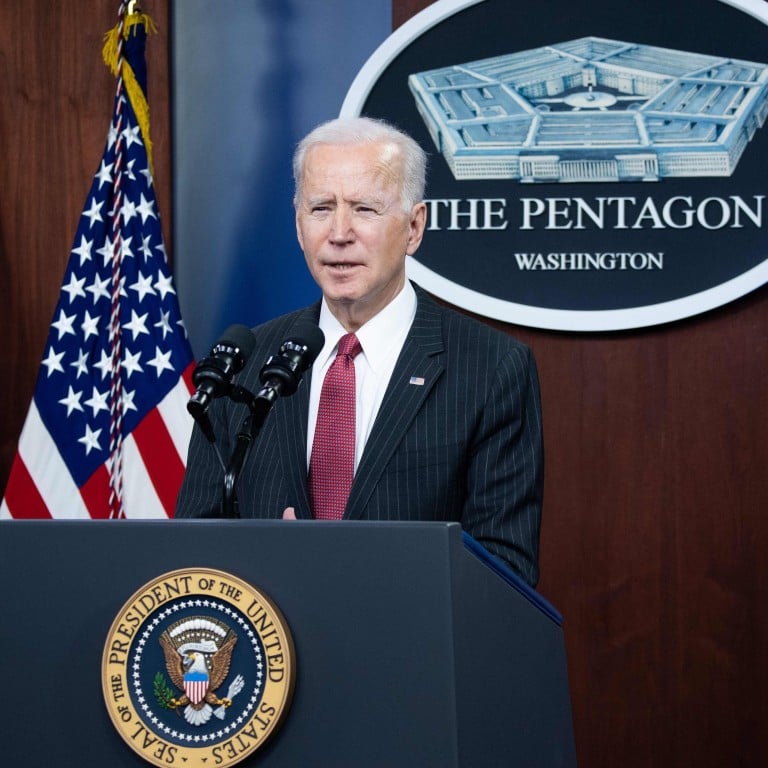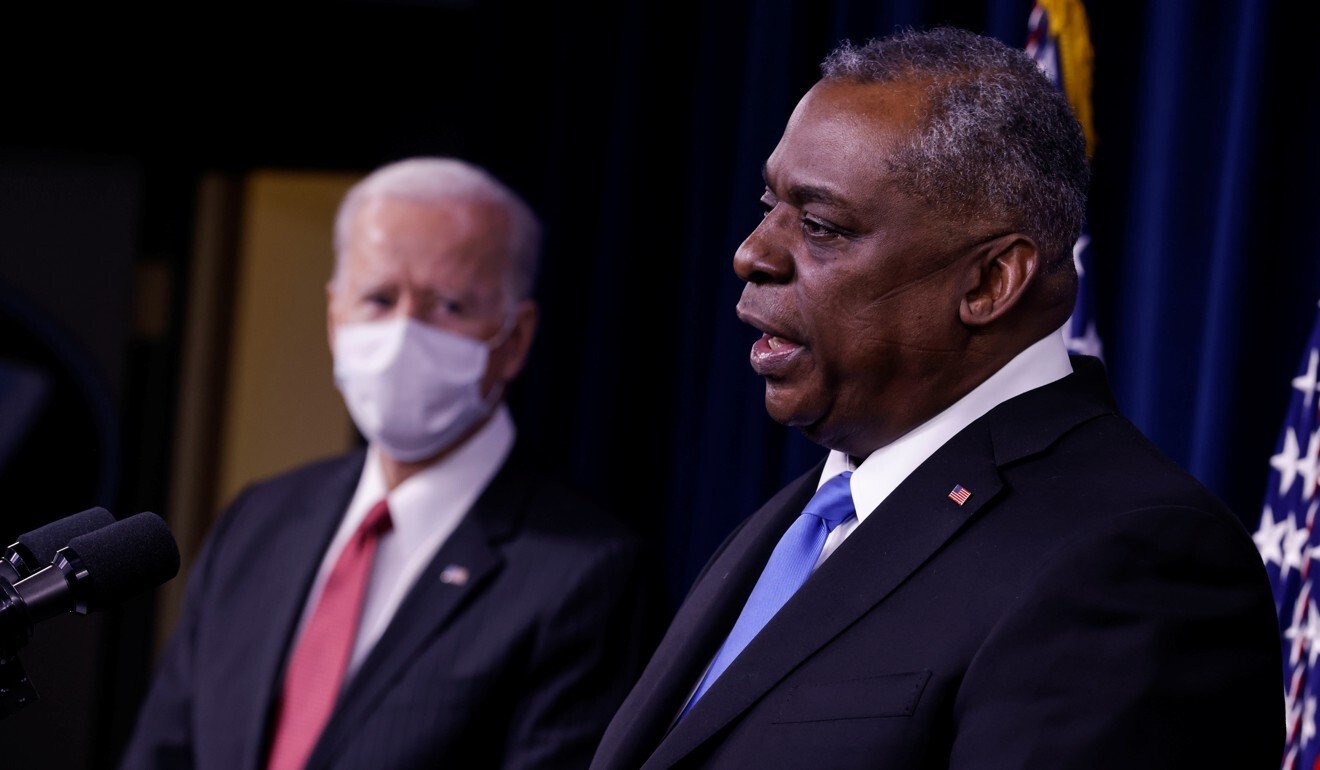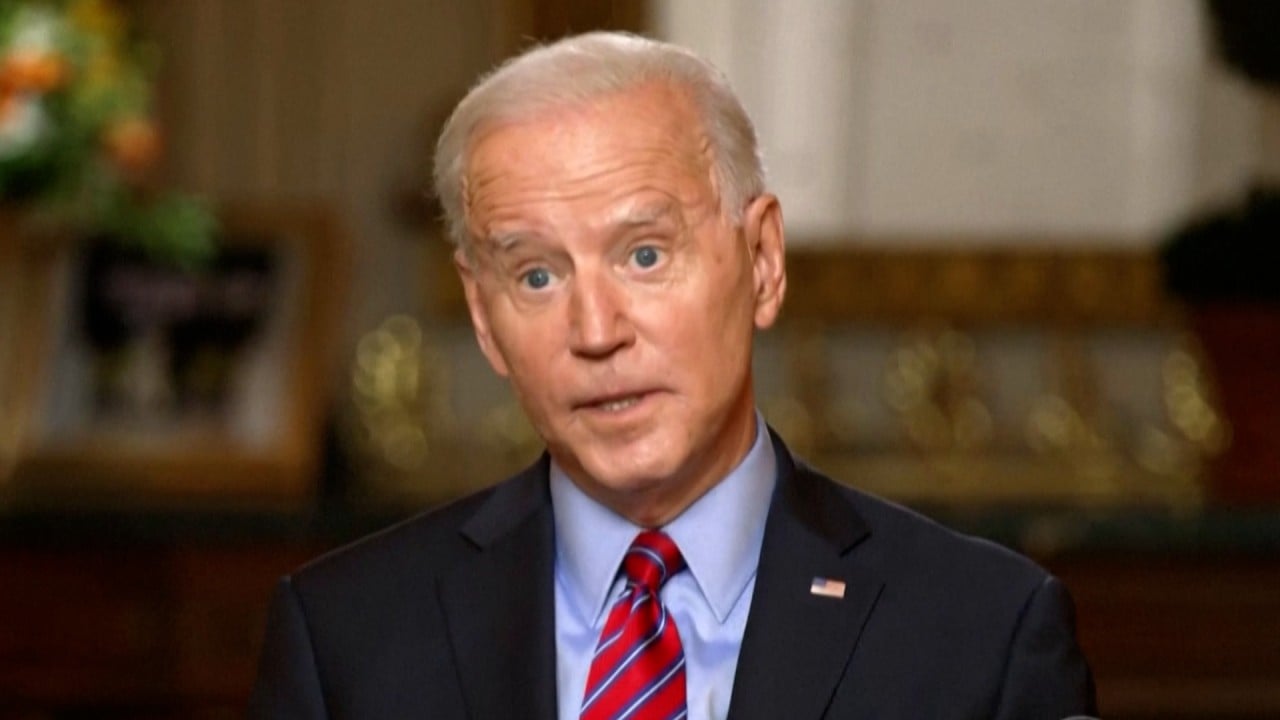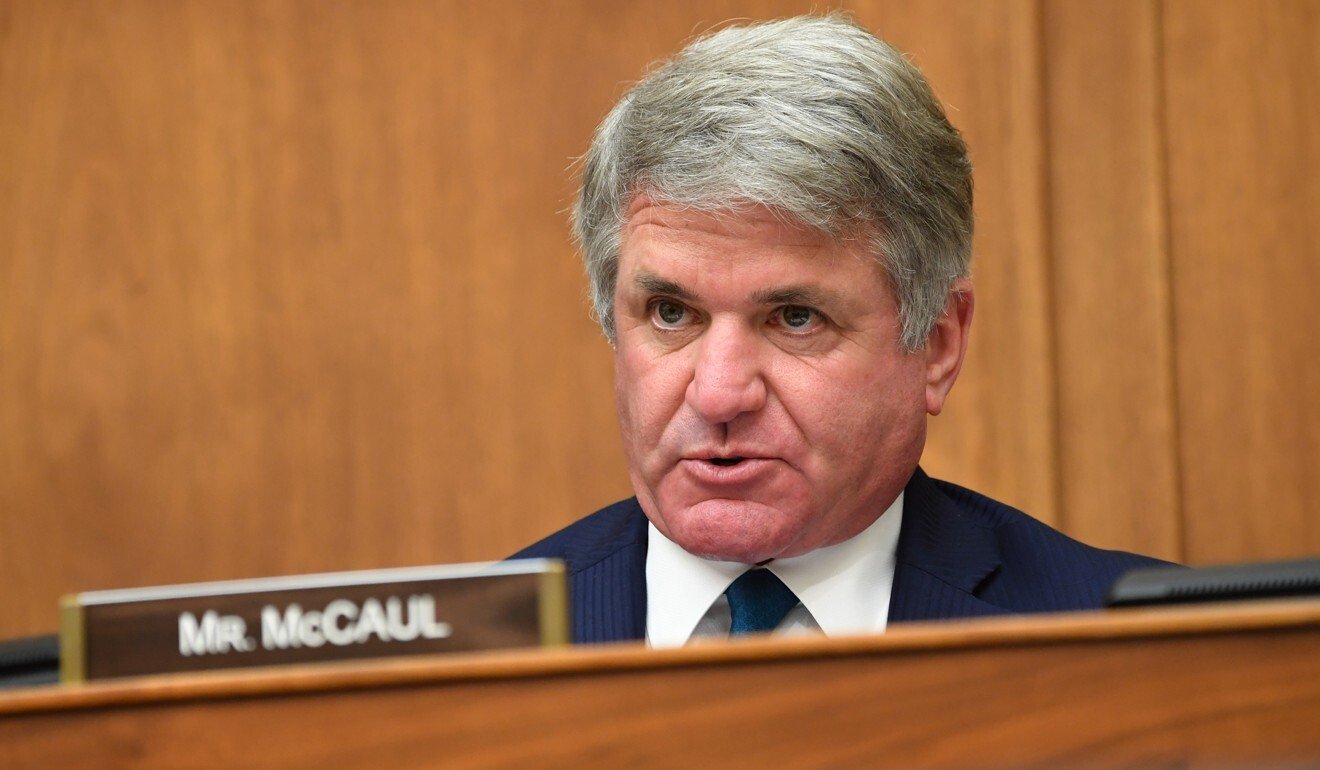
Biden announces new Pentagon task force to evaluate China-related strategy, tech and operations
- President describes US-China rivalry as ‘the competition of the future’, expresses concern about ‘growing challenges’ posed by Beijing
- Task force, which will also examine intelligence and alliances, will deliver its recommendations to Austin within four months
The US Defence Department is launching a task force to evaluate its China-related military strategies and operations, President Joe Biden announced on Wednesday, the latest indication that tensions between Washington and Beijing – a feature of Donald Trump’s presidency – will continue under the new administration.
The announcement coincided with a show of support for Taiwan from the Biden administration, as State Department officials met with the self-governed island’s representative in Washington.
Addressing Pentagon staff in the first defence-focused address of his presidency, Biden characterised the rivalry between the US and China as “the competition of the future”, expressing concern about the “growing challenges” posed by Beijing and threats to US interests in the Indo-Pacific region and beyond.

“It will require a whole-of-government effort, bipartisan cooperation in Congress and strong alliances and partnerships,” said Biden. “That’s how we’ll meet the China challenge and ensure the American people win the competition of the future.”
The task force’s unveiling came as Biden was said to be planning his first call with Chinese President Xi Jinping.
Biden administration officials have pledged a hardline approach to handling relations with China, and have emphasised efforts to build a multilateral front with which to challenge Beijing, in contrast to the largely unilateral approach that underpinned the Trump administration’s policy.

01:08
US President Joe Biden foresees ‘extreme competition’ with China
“We are better able to project our power when we’re amplifying our strength through our alliances,” Biden said on Wednesday.
In early signs of the administration moving to fortify such partnerships, Secretary of State Antony Blinken on Wednesday spoke with his Japanese counterpart, Toshimitsu Motegi, about their shared concerns of “increased Chinese assertiveness” in the East China Sea, according to a department readout of the call.
Also on Wednesday, the acting head of the State Department’s bureau of East Asian and Pacific affairs, Sung Kim, conducted a face-to-face meeting with Hsiao Bi-khim, Taipei’s representative in the US. In a tweet, the bureau said the US was “deepening ties with Taiwan, a leading democracy and important economic and security partner”.
Writing on Twitter, Hsiao said Wednesday’s meeting had covered “many issues of mutual interest, reflecting our strong and broad partnership.”
US alliances would be among the key areas of review for the Pentagon’s new China task force, alongside technology, intelligence, and relations between the two countries’ military forces, according to the department.
The task force, which will include both civilian and uniformed Pentagon staff, will be led by Ely Ratner, the special assistant to the new defence secretary, Lloyd Austin. A China specialist, Ratner served during the Obama administration as then-vice president Biden’s deputy national security adviser, having previously worked in the State Department’s office of Chinese and Mongolian affairs.
The task force will deliver its recommendations, which will not be made public, to Austin within four months.
Biden taps Asia expert Ely Ratner as top Pentagon adviser on China
China expert Michael Pillsbury, who acted as an informal advisor to Trump on China issues, said in an interview that he had previously suggested to former defence secretaries James Mattis and Mark Esper that they establish a department-wide review of the Pentagon’s China policies, but that neither had shown interest.
Describing Biden’s announcement as “long overdue”, Pillsbury said the task force should address what he considered a years-long problem at the Pentagon of uncoordinated actions and messaging relating to China. “The Pentagon has been confusing Beijing, sometimes dangerously,” said Pillsbury, citing prior conversations with Chinese military officials.
“If China is our main challenge, we’re going to need a new command structure and some kind of czar over all the [Pentagon] units involved in our relationship with China,” said Pillsbury, who heads Chinese strategy at the Washington-based Hudson Institute.
Biden has ‘no reason not to call’ Xi – but it’s proving tricky to set up
The move to establish a task force comes nine months after Congressional Republicans formed their own task force on Capitol Hill to examine a broad swathe of China-related issues, including influence operations in the US, economic relations, technological rivalry and Beijing’s handling of the coronavirus outbreak.
McCaul said he had discussed his panel’s recommendations with senior Biden administration officials and “look[ed] forward to working with them” on those that had yet to be instituted.

In his remarks on Wednesday, Biden also praised the Pentagon’s civilian and military staff, saying they were “essential to how we must rethink and reprioritize our security to meet the challenges of this century, not the last”.
“We need to take on the dangers and opportunities of emerging technologies, enhance our capabilities in cyberspace, ensure that we are positioned to lead in a new era of competition, from deep sea to outer space,” he said.
And in an apparent dig at Trump, who, in private conversations with aides, had reportedly called American war dead “losers” and “suckers”, Biden told the Pentagon staff: “I will never dishonour you. I will never disrespect you. I will never politicise the work you do.”

